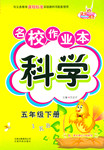题目内容
A new word has suddenly become wildly popular in China - "tuhao" - which loosely translated means "nouveau riche". There have been more than 100 million references to the word "tuhao" on social media since early September.
It's being used to describe everything from the new People's Daily building, to expensive celebrity weddings full of bling, and the new gold-coloured iPhone.
In Chinese "tu" means earth and "hao" means rich. To say someone is tuhao is to imply they come from a poor peasant background, and have made it rich quick - but don't quite have the manners, or sophistication to go along with it. It's like the term "nouveau riche", says Professor Steve Tsang at the School of Contemporary Chinese Studies in Nottingham - but has even more negative meanings, suggesting a certain vulgarity(粗俗).
"Tuhao" is actually an old word - dating back perhaps as far as the Southern Dynasty 1,500 years ago - but it has always meant something rather different. During the communist revolution, from the 1920s to early 1950s, it was widely used to refer to landholders and gentry who would bully(欺负) those beneath them.
This new usage of the term took off in September after a widely-shared joke about a rich, but unhappy man, who goes to a Buddhist monk for advice, expecting to be told to live a more simple life. The monk replies instead with the phrase: "Tuhao, let's be friends!"
Chinese internet users are highly creative in their use of language, and are constantly inventing, and re-inventing words as a way of getting past censorship(审查) rules. But in this case, its popularity seems to be down to the fact that it expresses China's changing society so well - many people sneer at those with wealth, but are secretly jealous.
1. What is the best title of the passage?
A. Tuhao, a new popular word in China
B. The long history of Tuhao
C. The new usage of Tuhao
D. Tuhao, a newly-invented Chinese word
2. Which of the following may NOT be considered “tuhao”?
A. A vulgar nouveau riche
B. A bully landholder
C. A quick-rich peasant without proper manners
D. A Buddhist monk.
3. The last but one paragraph mainly tells us ______.
A. what the new usage of the word is
B. how the word becomes popular again
C. why the unhappy man went to the Buddhist monk
D. what advice the monk gave the unhappy man
4. What does the underlined word in the last paragraph mean?
A. respect B. envy
C. laugh D. disbelieve
1.A
2.D
3.B
4.C
【解析】
试题分析:本文讲述了新词土豪的来历,意义,及其不断更新的用法,这些不断更新的意义使其再度受到许多人的追捧。
1.
2. rich, but unhappy man, who goes to a Buddhist monk for advice可知是一个富有的不愉快的人去向大师寻求建议,而并非这个大师是土豪。故选D
3. new usage of the term took off in September after a widely-share可知由于新用法的出现使这个词再次走红。故选B
4. even more negative meanings, suggesting a certain vulgarity(粗俗).可知土豪是个贬义词,是用来讥讽的。故选C
考点:考查说明类阅读

 一卷搞定系列答案
一卷搞定系列答案 名校作业本系列答案
名校作业本系列答案 轻巧夺冠周测月考直通名校系列答案
轻巧夺冠周测月考直通名校系列答案